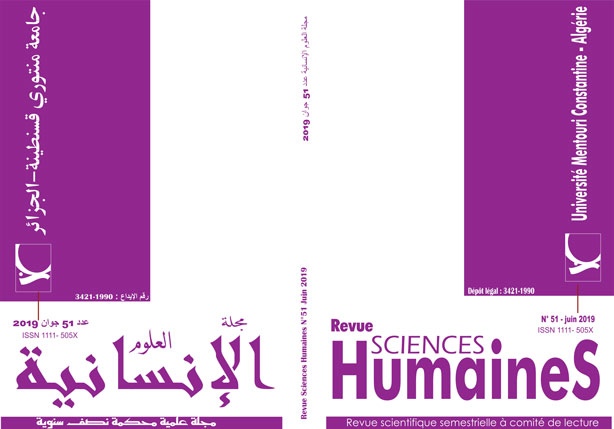The Effect of Collocational Success on Essay Grading: A Case of Algerian EFL Learners
الكلمات المفتاحية:
Verb Noun Collocations، Highest Grades، Essays.الملخص
Collocations are an inherent and indispensable part of the language continuum. This work investigates the mastery of Verb+Noun lexical collocations by Algerian EFL learners at the University of Mentouri Brothers, Constantine 1. It is hypothesised that Algerian EFL learners have a low level of mastery in the usage and comprehension of Verb+Noun collocations. It is also hypothesised that the essays of Algerian EFL learners lack the use of appropriate Verb+Noun collocations, a factor that influences the grades they receive. An online corpus (BNC) and two other online websites (Collocation Checker & O.O.C.D) were used as tools to measure learners’ collocational competence. Examined collocations were extracted from the learners’ examination essays. The analysis was done manually through identification and corpus usage. The findings reveal that the Verb+Noun collocational errors that were spotted were not taken in consideration during the correction, even though they are an indispensable part that guarantees the use of correct language. The findings also confirm the aforementioned hypotheses, in addition to the fact that teachers are either unaware of the impact of collocations on the writing quality, or did not take them into account, because they did not teach them. This could be noted by the fact that even the essays that received the highest grades contain many collocational errors.
التنزيلات
المراجع
Bahns, J. (1993). Lexical Collocations: A Contrastive View. ELT Journal 47/1, 56-63. doi: org/10.1093/elt/47.1.56
Benson, M. (1985). Collocations and idioms. Dictionaries, Lexicography and Language
Learning. Oxford: Pergamon.
Darvishi, S. (2011). The investigation of collocational errors in university students’ writing
majoring in English. Paper presented at the 2011 International Conference on Education: Research and Innovation, Singapore. IACSIT. Retrieved from: www.ipedr.com
Farrokh, P. (2012). Raising awareness of collocations in ESL/EFL classrooms. Journal
Studies in Education, 2, 55-74. doi: 10.5296/jse.v2i3.1616
Firth, J. R. (1957). Papers in Linguistics. Oxford: OUP, 17, 402-413. doi.org/10.1111/j.1473-4192.2007.00164.x
Gabrielatos, C. (1994). Collocations: Pedagogical implications, and their treatment in
pedagogical materials. Unpublished essay, Research Centre for English and Applied
Linguistics, 1-17. Retrieved from: www.academia.edu
Ganji, M. (2012). On the effect of gender and years of instruction of Iranian EFL learners’
collocational competence. English Language Teaching, (5), 123-133. doi:
5539/elt.v5n2p123
Hardi , A. (2008). A collocation-based approach to Nepali postpositions. Journal of Corpus Linguistics and Linguistic Theory, 4(1), 19-61
Hatch, E., Brown, C., 1995. Vocabulary, semantics, and language education. CUP.
Henriksen, B. (2013). Research on L2 learners’ collocational competence and development –a progress report. 29-56. Retrieved from: www.eurosla.org
Lewis, M. (1997). Implementing the lexical approach. England: Language
Teaching Publication, 8, 34-44. doi.org/10.1002/j.1949-3533.1999.tb00159.x
ePDFPDF
McKeown, K. R., Radev, D. R. (1995). Collocations. 1-19. New York. Retrieved from: clair.si.umich.edu
Wray, A. (1999). Formulaic language in learners and native speakers. Centre for Language & Communication Research, 32, 213-231.
Wood, D. (2009). Effects of focused instruction of formulaic sequences on fluent expression.
in second language narratives: A case study.12, 39-57. Retrieved from https://journals
.lib.unb.ca/index.php/CJAL/article/view/19898/21736
















